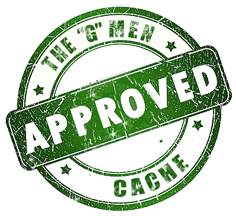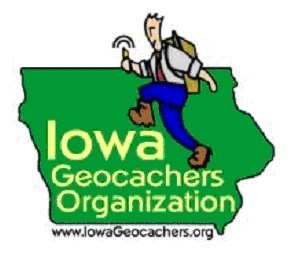This cache was placed as part of Hike-n-Seek 2015.
One of the wittiest and shrewdest of the Sioux chiefs was American Horse, who succeeded to the name and position of an uncle, killed in the battle of Slim Buttes in 1876. The younger American Horse was born a little before the encroachments of the whites upon the Sioux country became serious and their methods aggressive, and his early manhood brought him into that most trying and critical period of our history. He had been tutored by his uncle, since his own father was killed in battle while he was still very young. The American Horse band was closely attached to a trading post, and its members in consequence were inclined to be friendly with the whites, a policy closely adhered to by their leader.
When he was born, his old grandfather said: "Put him out in the sun! Let him ask his great-grandfather, the Sun, for the warm blood of a warrior!" And he had warm blood. He was a genial man, liking notoriety and excitement. He always seized an opportunity to leap into the center of the arena.
In early life he was a clownish sort of boy among the boys -- an expert mimic and impersonator. This talent made him popular and in his way a leader. He was a natural actor, and early showed marked ability as a speaker.
American Horse was about ten years old when he was attacked by three Crow warriors, while driving a herd of ponies to water. Here he displayed native cunning and initiative. It seemed he had scarcely a chance to escape, for the enemy was near. He yelled frantically at the ponies to start them toward home, while he dropped off into a thicket of willows and hid there. A part of the herd was caught in sight of the camp and there was a counter chase, but the Crows got away with the ponies. Of course his mother was frantic, believing her boy had been killed or captured; but after the excitement was over, he appeared in camp unhurt. When questioned about his escape, he remarked: "I knew they would not take the time to hunt for small game when there was so much bigger close by."
When he was quite a big boy, he joined in a buffalo hunt, and on the way back with the rest of the hunters his mule became unmanageable. American Horse had insisted on riding him in addition to a heavy load of meat and skins, and the animal evidently resented this, for he suddenly began to run and kick, scattering fresh meat along the road, to the merriment of the crowd. But the boy turned actor, and made it appear that it was at his wish the mule had given this diverting performance. He clung to the back of his plunging and braying mount like a circus rider, singing a Brave Heart song, and finally brought up amid the laughter and cheers of his companions. Far from admitting defeat, he boasted of his horsemanship and declared that his "brother" the donkey would put any enemy to flight, and that they should be called upon to lead a charge.
It was several years later that he went to sleep early one night and slept soundly, having been scouting for two nights previous. It happened that there was a raid by the Crows, and when he awoke in the midst of the yelling and confusion, he sprang up and attempted to join in the fighting. Everybody knew his voice in all the din, so when he fired his gun and announced a coup, as was the custom, others rushed to the spot, to find that he had shot a hobbled pony belonging to their own camp. The laugh was on him, and he never recovered from his chagrin at this mistake. In fact, although he was undoubtedly fearless and tried hard to distinguish himself in warfare, he did not succeed.
It is told of him that he once went with a war party of young men to the Wind River country against the Shoshones. At last they discovered a large camp, but there were only a dozen or so of the Sioux, therefore they hid themselves and watched for their opportunity to attack an isolated party of hunters. While waiting thus, they ran short of food. One day a small party of Shoshones was seen near at hand, and in the midst of the excitement and preparations for the attack, young American Horse caught sight of a fat black-tail deer close by. Unable to resist the temptation, he pulled an arrow from his quiver and sent it through the deer's heart, then with several of his half-starved companions sprang upon the yet quivering body of the animal to cut out the liver, which was sometimes eaten raw. One of the men was knocked down, it is said, by the last kick of the dying buck, but having swallowed a few mouthfuls the warriors rushed upon and routed their enemies. It is still told of American Horse how he killed game and feasted between the ambush and the attack.
**Cache at your own risk**
Geocaching, hiking, backpacking and other outdoor activities involve risk to both persons and property. There are many variables including, but not limited to, weather, fitness level, terrain features and outdoor experience, that must be considered prior to seeking a Cache. Be prepared for your journey and be sure to check the current weather and conditions before heading outdoors. Always exercise common sense and caution.
**Remember to be good ambassadors to nature. We as geocachers have a responsibility to leave it as we found it, so others may enjoy nature's glory. Always replace the cache the way you found it, so others may enjoy the find.
For more on geocaching in Iowa, visit the Iowa Geocachers Organization home page 
